Security Business

What are the benefits of using blockchain in business ?
The article discusses the various benefits of using blockchain technology in business operations. These benefits include increased transparency and trust, improved security, reduced costs and efficiency, greater control and traceability, enhanced data management, and potential for innovation and new business models. Blockchain's decentralized nature and cryptographic security make it a secure and efficient way to store and manage data, automate processes, and track the movement of goods and services. The technology also offers new possibilities for innovation and disruptive business models.

What is the purpose of a VPN (Virtual Private Network) device in a business network ?
The purpose of a VPN device in a business network is to provide secure and encrypted connections for remote access to the organization's resources, ensuring that employees, partners, and customers can access the company's data and applications securely from any location. Key features include encryption, authentication, firewall protection, scalability, and flexibility. Benefits of using a VPN device in a business network include enhanced security, improved productivity, cost savings, and simplified IT management.
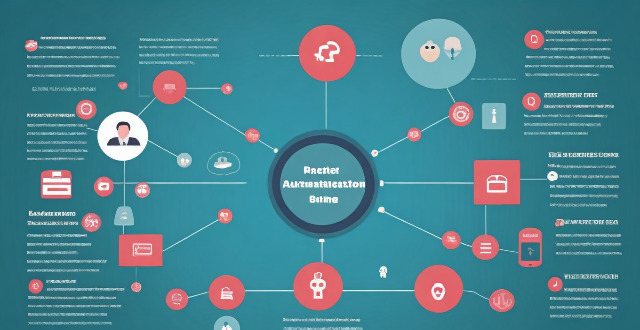
How does two-factor authentication enhance security ?
Two-factor authentication (2FA) is a security process that requires two different factors to verify the user's identity, enhancing security by reducing the risk of unauthorized access, providing alerts for suspicious activities, protecting against various types of attacks, increasing user confidence in online services, and helping maintain compliance with security standards. Its implementation should be carefully planned considering both security requirements and user convenience.

What is cloud security and why is it important ?
Cloud security is a critical aspect of modern computing, given the increasing reliance on cloud-based systems and data storage. It involves a comprehensive set of technologies, procedures, policies, and controls designed to safeguard cloud environments. The importance of cloud security stems from the vast amount of sensitive data stored in the cloud and the potential risks associated with unauthorized access or data breaches. Cloud security encompasses various elements that work together to ensure the safety and integrity of cloud-based resources. These include encryption, identity and access management (IAM), intrusion detection systems (IDS) and intrusion prevention systems (IPS), data loss prevention (DLP), and security information and event management (SIEM). The significance of cloud security can be understood through several key points: data protection, compliance requirements, business continuity, trust and reputation, and risk management. To effectively manage cloud security, several key aspects must be addressed: data encryption, access controls, regular audits, security updates, and education and training. In conclusion, cloud security is essential for protecting valuable data, maintaining compliance, ensuring business continuity, and preserving the trust and reputation of an organization. As cloud computing continues to grow, so does the need for robust security measures to safeguard against evolving threats.

What are the key elements of female business attire and etiquette ?
This article outlines the key elements of female business attire and etiquette, including appropriate clothing choices such as tailored blazers, collared shirts, closed-toe pumps, and understated jewelry. It also emphasizes the importance of proper etiquette in introductions, meetings, communication, dress code compliance, dining situations, and maintaining confidence and poise. Following these guidelines can help women project a professional image and strengthen their personal brand in the business world.

What are the benefits of using a wireless communication standard in business ?
The text discusses the benefits of using a wireless communication standard in business. Wireless technology offers increased flexibility and mobility, allowing employees to work remotely and collaborate more freely within the workplace. It also leads to improved efficiency by enabling faster deployment and scalability of networks. Cost savings are another advantage, as businesses can reduce infrastructure and maintenance expenses. Enhanced collaboration and communication are facilitated by instant connectivity between devices. Additionally, customer experience is improved through public Wi-Fi services and mobile point-of-sale systems. Finally, adopting wireless standards future-proofs businesses by supporting emerging technologies and ensuring adaptability to changing needs. Overall, wireless communication standards are crucial for modernizing business operations and staying competitive in an interconnected world.
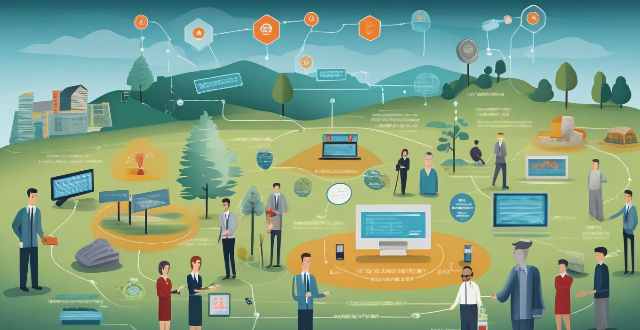
Can blockchain technology improve data security and privacy ?
Blockchain technology has been touted as a revolutionary tool that can improve data security and privacy. Its decentralized nature, encryption, and transparency make it difficult for attackers to compromise the network. Additionally, its anonymity, control over personal data, and smart contracts enhance privacy by giving individuals more control over their information.

How often should a business review its credit management policies ?
The frequency of reviewing your credit management policies will depend on various factors specific to your business. However, by conducting regular reviews and staying vigilant about potential issues, you can help ensure that your policies remain effective and aligned with your business goals.

How do changes in economic indicators affect small business operations ?
Economic indicators such as GDP, inflation rates, unemployment, interest rates, and consumer confidence can significantly affect small businesses. These changes impact financing costs, labor availability, consumer demand, and operational expenses. Small business owners should monitor these factors to adjust their strategies effectively.

Can you provide examples of female-driven social enterprises that combine business with philanthropy ?
Female-driven social enterprises are combining business with philanthropy to create positive change in society, empowering marginalized individuals and promoting sustainability. Examples include Samasource, Prodigy Finance, Kiva, S'well, and Girlfriend Collective. These organizations demonstrate the power of women in driving social impact through sustainable business practices.

Does restrictive immigration policy improve national security ?
The text discusses the complex question of whether restrictive immigration policy enhances national security. It explores various aspects including economic impact, social cohesion, international relations, and internal security dynamics to provide a nuanced understanding. The text concludes that while a restrictive immigration policy might seem appealing from a national security standpoint, it is not a silver bullet, as benefits must be weighed against potential negative impacts on different factors. A balanced approach that ensures thorough vetting without undue restrictions might prove more effective in enhancing national security in the long term.
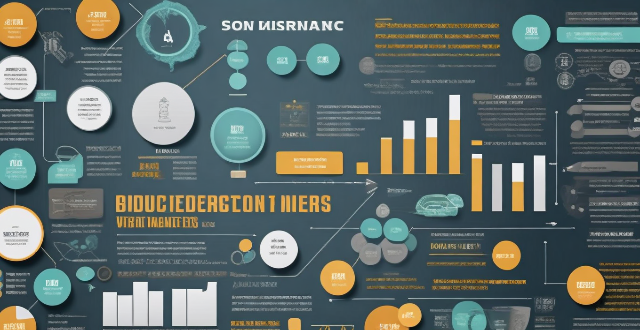
How do investors evaluate the credibility of a celebrity-led business ?
Investors consider various factors when evaluating the credibility of a celebrity-led business, including the reputation and expertise of the celebrity, the quality of the product or service, marketing and branding strategies, and financial performance and projections. By analyzing these factors, investors can make informed decisions about whether to invest in such businesses.

How can insurers adapt to climate change and its impacts on their business ?
Insurers must adapt proactively to mitigate potential losses and maintain their business sustainability, including understanding climate change risks, innovating products and services, adjusting pricing and underwriting strategies, managing risks effectively, establishing governance and transparency, and fostering collaboration and partnerships.

How do I choose the right type of fire extinguisher for my home or business ?
Choosing the right type of fire extinguisher for your home or business requires careful consideration of various factors such as classification, size, ease of use, maintenance, cost, and brand reputation. By taking these factors into account, you can select a fire extinguisher that meets your specific needs and helps keep you and your property safe from fire hazards.
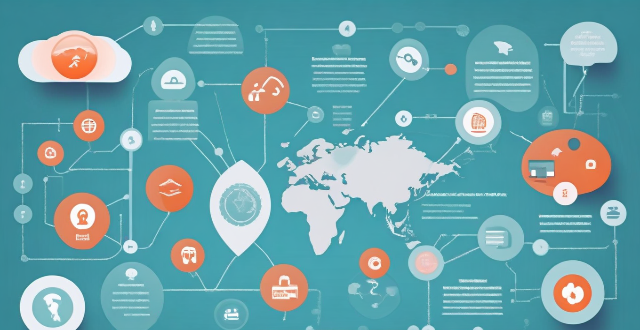
Can mind mapping be effectively used in business settings ?
Mind mapping is a visual tool that can be effectively used in business settings to enhance productivity, creativity, and communication. It helps individuals and teams organize information, generate ideas, and solve problems by creating a structured diagram of related concepts. The benefits of mind mapping in business include improved organization, enhanced creativity, increased productivity, and better communication. To implement mind mapping in business, one should choose the right tool, train their team, integrate it into processes, encourage collaboration, and continuously evaluate its effectiveness.

What are the best practices for network security protection ?
The text provides a detailed outline on the best practices for network security protection, which can be summarized in the following points: 1. **Use Strong Passwords**: Create complex passwords using a mix of characters and numbers, change them regularly, avoid personal information, and use a password manager. 2. **Keep Software Up-to-date**: Regularly update all software to patch vulnerabilities and enable automatic updates where possible. 3. **Implement Firewall Protection**: Use both hardware and software firewalls, configure rules to allow necessary traffic only, and monitor firewall logs. 4. **Use Encryption**: Encrypt sensitive data in transit and at rest, use VPNs for remote connections, and implement end-to-end encryption for high-security communications. 5. **Educate Employees on Security Best Practices**: Conduct regular training, encourage safe online behavior, and establish clear policies for device and internet use. 6. **Limit Access Rights**: Grant access based on need, review and revoke unnecessary rights, and use multi-factor authentication for sensitive resources. 7. **Backup Data Regularly**: Create regular backups, test them periodically, and implement version control for important files. 8. **Monitor Network Activity**: Use IDS and IPS systems, set up alerts for unusual activity, and conduct regular security audits. By adhering to these practices, organizations can significantly enhance their network security posture and mitigate the risks associated with cyber threats.
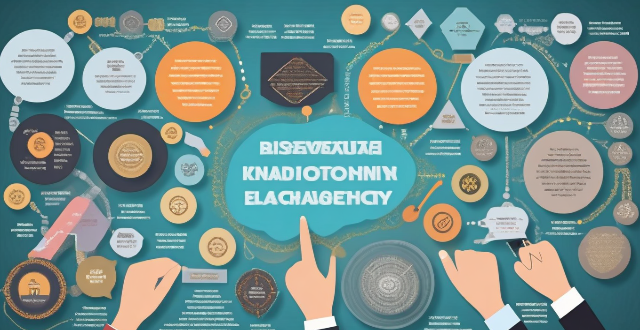
Where can I find comprehensive online learning resources for business management ?
The article discusses various online learning platforms that offer comprehensive resources for business management. These include Coursera, Udemy, edX, Khan Academy, and LinkedIn Learning. The courses provided by these platforms cover a wide range of topics, such as strategy formulation, financial management, human resource management, and marketing. Some of the popular courses mentioned are Introduction to Marketing by Northwestern University on Coursera, Business Finance for Non-Finance Managers on Udemy, and Strategy and Innovation in the New Economy by Stanford University on edX. The article emphasizes that these platforms offer courses suitable for learners of all levels and can help individuals acquire the necessary knowledge and skills to become successful business managers.
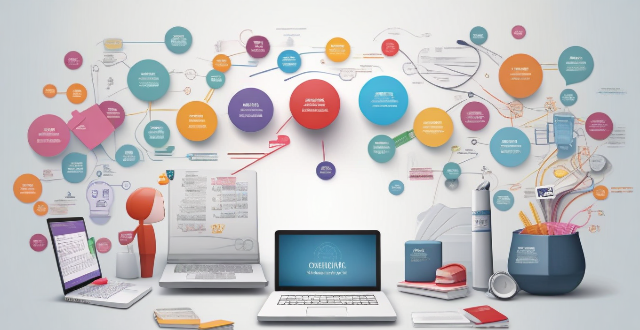
What role does a celebrity's reputation play in the success of their business ventures ?
The reputation of a celebrity can significantly impact the success of their business ventures. A positive reputation can establish trust and credibility with consumers, align with brand image, provide effective marketing opportunities, and foster customer loyalty. Managing perception is crucial in maintaining a positive reputation and avoiding negative publicity that could harm the business's reputation. Overall, a celebrity's reputation is a valuable asset that can contribute to the success and longevity of their business endeavors.

How do celebrity entrepreneurs balance their public image with their business responsibilities ?
Balancing public image with business responsibilities is crucial for celebrity entrepreneurs to maintain their personal brand and ensure the success of their ventures. Key strategies include consistent messaging, active social media presence, mindful public appearances, delegation, setting clear goals, continuous learning, aligning marketing strategies, collaborations, and transparency. By integrating these approaches, they can effectively navigate their dual roles, leveraging fame to drive business success while staying true to their personal brand.

How can women build a strong network in the business community ?
In today's competitive business landscape, building a strong network is crucial for success. For women, it is especially important to cultivate relationships with peers, mentors, and industry leaders. This guide will provide strategies and tips on how women can build a strong network in the business community by attending industry events and conferences, joining professional organizations, utilizing social media, seeking mentorship, and being proactive in maintaining relationships.
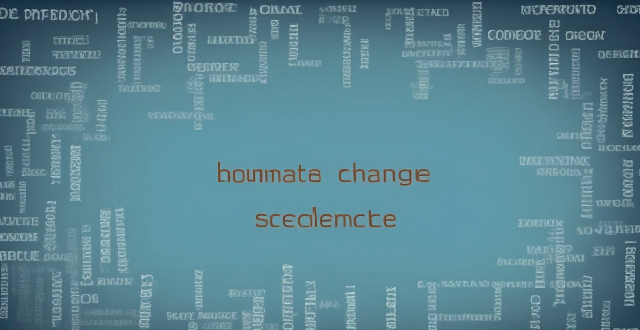
How does climate change impact ethical considerations in business practices ?
This text discusses the impact of climate change on ethical considerations in business practices. It outlines how climate change affects sustainability and resource use, supply chain resilience, product stewardship and lifecycle, employee and community well-being, and transparency and accountability. The text suggests actionable steps that businesses can take to address these issues, such as adopting renewable energy sources, diversifying suppliers, designing products with their end of life in mind, engaging with communities, and publishing annual sustainability reports. Overall, the text emphasizes the importance of integrating sustainability into every aspect of business operations to mitigate environmental impact and build trust with stakeholders.

What are the security concerns related to Smart Grid Technology ?
Smart grid technology, which uses digital communication technologies to monitor and control the flow of electricity, offers benefits such as increased efficiency and reliability. However, there are security concerns that need to be addressed, including cyber attacks, data breaches, insider threats, physical security risks, and interdependencies with other critical infrastructures. It is essential to implement strong cybersecurity measures, strict access controls, and robust physical security protocols to protect the system's integrity and confidentiality.

What are the benefits of using a virtual private network (VPN) for network security protection ?
The text discusses the benefits of using a Virtual Private Network (VPN) for network security protection. It highlights seven key advantages: 1. **Encryption and Secure Data Transmission**: VPNs encrypt internet traffic, securing data transmission, especially on public Wi-Fi networks. 2. **Anonymity and Privacy**: By routing connections through remote servers, VPNs mask IP addresses and physical locations, enhancing online privacy. 3. **Access to Geo-Restricted Content**: VPNs enable users to bypass geographical restrictions, accessing blocked or restricted content. 4. **Protection Against Bandwidth Throttling**: VPNs can prevent ISPs from managing certain types of traffic by encrypting it. 5. **Enhanced Security on Public Networks**: Using a VPN on public networks adds an extra security layer against potential hackers. 6. **Remote Access to Work Networks**: For businesses, VPNs provide secure remote access to company resources. 7. **Avoid Censorship**: In regions with internet censorship, VPNs can help users access an unrestricted internet. The note emphasizes choosing a reputable VPN provider and practicing good cybersecurity habits for optimal protection.
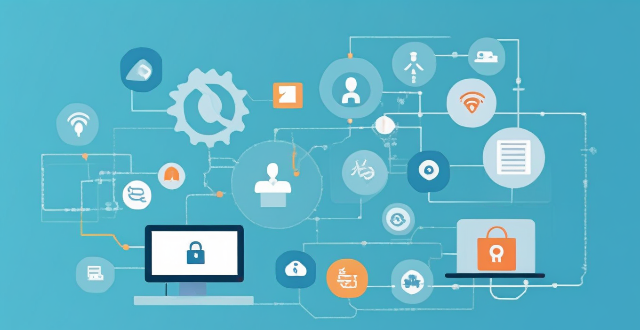
What are the security concerns related to IoT ?
The article discusses the major security concerns related to the Internet of Things (IoT), such as data privacy and confidentiality, device security, network security, physical security, and software vulnerabilities. It emphasizes the need for implementing appropriate security measures to ensure the secure deployment of IoT devices and protect sensitive information from unauthorized access.

How do firewalls contribute to network security ?
Firewalls are crucial for network security, offeringFirewalls are crucial for network security, offering, blocking unwanted connections, preventing preventing network intrusion, enforcing security policies, providing VPN support, integrating with other security systems, protecting against known threats, offering customizable features, ensuring scalability and performance, and reducing the risk of data breach.
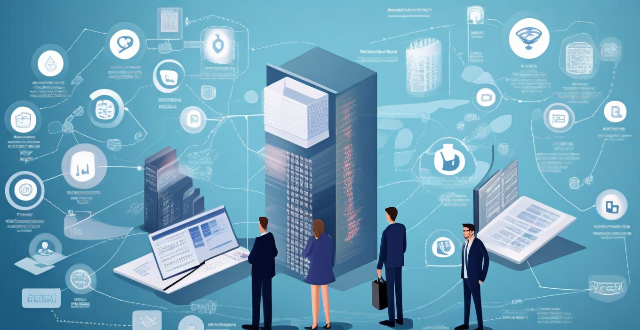
How do remote education platforms ensure data privacy and security ?
Remote education platforms ensure data privacy and security through encryption, access controls, two-factor authentication, regular security audits, and data retention policies. These measures help protect user data during transmission and storage, restrict access to sensitive information, add an extra layer of security, identify and fix vulnerabilities, and minimize the risk of data breaches.

What are the benefits of using data encryption in business ?
Data encryption in business offers protection of sensitive information, compliance with legal requirements, enhanced customer trust, defense against cyber threats, and controlled data access. It ensures confidentiality and integrity of communications, helps meet regulatory standards, safeguards personal data, builds customer confidence, mitigates risks of data breaches, guards against malware and ransomware, provides role-based access control, and simplifies key management. This makes encryption an essential tool for securing digital assets and strengthening a company's market position.

How does climate change affect food security and nutrition ?
Climate change significantly impacts global food security and nutrition by causing extreme weather events, altering ecosystems, reducing water availability, affecting marine life, posing agricultural challenges, and diminishing nutrient intake. Mitigation strategies include sustainable agriculture practices, dietary diversification, and research and development to ensure future food security and nutrition.

What are some tips for getting through security quickly and efficiently ?
Getting through security quickly and efficiently requires preparation and knowledge. Pack smart by following the 3-1-1 rule for liquids, keeping electronics separate, storing medications in their original containers, and wearing easy-to-remove shoes and jackets. Know the rules by researching specific security policies, having travel documents ready, and avoiding restricted items. At the security checkpoint, prepare your belongings by placing metal objects in your carry-on bag and separating liquids. Follow procedures by staying alert, complying with instructions, and moving swiftly. After security, reorganize and regroup by repacking liquids and reassembling any removed accessories or outer layers. Stay informed about any updates to security procedures before your next trip.